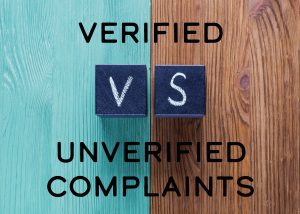 Many business owners are familiar with the discovery process. When a lawsuit is filed, it triggers a formal process of exchanging evidence between the parties to the case. The discovery process has specific rules governed by law. These rules are designed to protect litigants from opposing parties who would misuse – or blatantly abuse – the discovery process. Unfortunately, if your lawyer is not experienced with the discovery process, your business can be hurt by these strategies. The experienced corporate litigators at Structure Law Group know how to protect litigants from discovery abuse. They are familiar with the tricks and strategies that are used, know how to call out other attorney’s misconduct, and know how to seek sanctions from the court when necessary. Learn more about the tactics for discovery misuse that can hurt your business.
Many business owners are familiar with the discovery process. When a lawsuit is filed, it triggers a formal process of exchanging evidence between the parties to the case. The discovery process has specific rules governed by law. These rules are designed to protect litigants from opposing parties who would misuse – or blatantly abuse – the discovery process. Unfortunately, if your lawyer is not experienced with the discovery process, your business can be hurt by these strategies. The experienced corporate litigators at Structure Law Group know how to protect litigants from discovery abuse. They are familiar with the tricks and strategies that are used, know how to call out other attorney’s misconduct, and know how to seek sanctions from the court when necessary. Learn more about the tactics for discovery misuse that can hurt your business.
Abuse Can Run Rampant
There are many ways in which an opposing party can abuse the discovery system. One strategy is the “war of attrition.” This can happen when one party is a large business with plenty of funds for litigation, and the other party is a smaller business that has limited resources to pay legal expenses. In this case, an opponent may attempt to drag out the discovery process as long as possible in order to run up the opponent’s legal fees. They might request depositions of unnecessary witnesses, or ask for far more documents than they reasonably need, or insist that documents be organized in a different order or format than how they were originally received. They might file frivolous discovery motions with the court in order to delay discovery and increase your attorney’s fees. All of these requests add up. The discovery process can last for months, so if your attorney is working to manage a lot of frivolous requests, your legal fees can become overwhelming very quickly. In this case, your attorney may need to file a motion with the court to curtail the unnecessary discovery requests – and seek monetary sanctions for misuse of the discovery system.
 Business Lawyers Blog
Business Lawyers Blog










